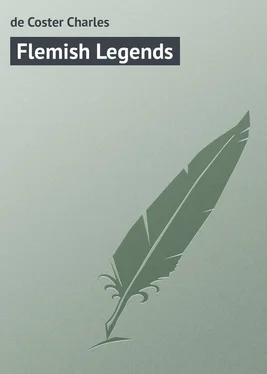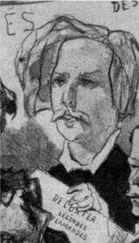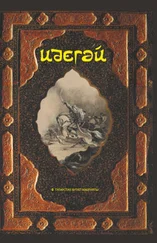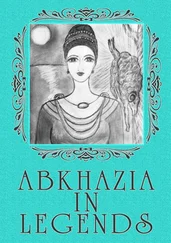Charles de Coster - Flemish Legends
Здесь есть возможность читать онлайн «Charles de Coster - Flemish Legends» — ознакомительный отрывок электронной книги совершенно бесплатно, а после прочтения отрывка купить полную версию. В некоторых случаях можно слушать аудио, скачать через торрент в формате fb2 и присутствует краткое содержание. Жанр: foreign_prose, на английском языке. Описание произведения, (предисловие) а так же отзывы посетителей доступны на портале библиотеки ЛибКат.
- Название:Flemish Legends
- Автор:
- Жанр:
- Год:неизвестен
- ISBN:нет данных
- Рейтинг книги:4 / 5. Голосов: 1
-
Избранное:Добавить в избранное
- Отзывы:
-
Ваша оценка:
- 80
- 1
- 2
- 3
- 4
- 5
Flemish Legends: краткое содержание, описание и аннотация
Предлагаем к чтению аннотацию, описание, краткое содержание или предисловие (зависит от того, что написал сам автор книги «Flemish Legends»). Если вы не нашли необходимую информацию о книге — напишите в комментариях, мы постараемся отыскать её.
Flemish Legends — читать онлайн ознакомительный отрывок
Ниже представлен текст книги, разбитый по страницам. Система сохранения места последней прочитанной страницы, позволяет с удобством читать онлайн бесплатно книгу «Flemish Legends», без необходимости каждый раз заново искать на чём Вы остановились. Поставьте закладку, и сможете в любой момент перейти на страницу, на которой закончили чтение.
Интервал:
Закладка:
Kindly he looked at them.
Knowing him for God’s angel, the three ladies fell on their faces before him.
But the youngest, bolder than the others, as is the way with children, dared to steal a look at the fair ambassador, and, seeing him so comely, took heart and smiled.
The angel took her by the hand, saying to her and to her sisters: “Come and follow me.”
This they did.
And thence they came to the spot where the church now stands, and the angel said to them: “This is the place.”
“Thank you, My Lord,” said the youngest joyously.
VIII. How the three ladies saw a green island, with sweet flowers and birds thereon
At that time it was thirteen days past the feast of the Kings; snow had fallen heavily and set hard in frost after, by reason of a north wind which was blowing.
And the three ladies saw before them, among the snow, as it were a green island.
And this island was girt about with a cord of purple silk.
And upon the island the air was fresh as in spring, and roses were blowing, with violets and jessamine, whose smell is like balm.
But outside was naught but storm, north wind, and terrible cold.
Towards the middle, where now stands the grand altar, was a holm-oak, covered with blossom as if it had been a Persian jessamine.
In the branches, warblers, finches and nightingales sang to their hearts’ content the sweetest songs of Paradise.
For these were angels, who had put on feathered guise, carolling in this fashion in God’s honour.
One fair nightingale, the sweetest singer of them all, held in his right claw a roll of parchment, whereon was written in letters of gold:
“This is the place chosen by God and shown by him to the three maidens for the building of a church to the glory of Our Lord and Saviour Jesus Christ.”
Great was the joy of the ladies at that sight, and the youngest said to the angel:
“We see certainly that God loves us somewhat; what must we do now, My Lord Angel?”
“Thou must build the church here, little one,” answered the messenger, “and choose for this work twelve of the most skilled workmen, neither more nor less; God himself will be the thirteenth.”
And having said so much he returned to high heaven.
IX. Of the church of Our Lord at Haeckendover, and of the strange mason who worked there
Then all three went off in haste to choose from among the others the twelve good workmen who should set up the foundations of the church where they had seen the cord of purple silk.
The work went on so well that it was a pleasure to see the stones mounting up, straight and quickly.
But the miracle was this, that during the hours of labour the masons were always thirteen in number, but at dinner and at paytime twelve only.
For the Lord Jesus was pleased to work with the others, but neither ate nor drank with them; he who in Paradise had such fine broth and such sweet fruits, and wine from the fountain of Saphir, which is a fountain giving forth without intermission wine of a richer yellow than liquid gold itself.
Nor did he suffer for want of money; for that is an evil reserved to us needy, piteous, and ill-faring mortals.
The building advanced so well that soon the bell was hung in the tower as a sign that the church was finished.
Then the three maids entered in together; and, falling on her knees, the youngest said:
“By whom, divine husband and beloved Jesus, shall we dedicate this church built for your service?”
To which the Lord Jesus replied: “It is I Myself who will consecrate and dedicate this church; let none come after me to consecrate it anew.”
X. Of the two bishops, and the withered hands
By and by two venerable bishops passed through Haeckendover, and seeing the new church were minded to give it their blessing.
They knew nothing of the words of Jesus to the three ladies, or they would not have thought of such temerity.
But they were punished terribly none the less.
For as one of them was about to bless the water for this purpose he became suddenly blind.
And the other, who was holding the holy water brush, when he lifted his arms for the blessing, found them suddenly withered and stiffened, so that he could no longer move them.
And perceiving that they had sinned in some way the two bishops were filled with repentance and prayed to the Lord Jesus to pardon them.
And they were straightway pardoned, seeing that they had sinned in ignorance.
And thereafter they came oftentimes most devoutly to Haeckendover.
Sir Halewyn
I. Of the two castles
Sir Halewyn lifted up his voice in a song.
And whatever maid heard that song must needs go to him straight away.
And now to all good Flemings will I tell the tale of this Halewyn and his song, and of the brave maid Magtelt.
There were two proud castles in the province of Flanders. In one dwelt Sir Roel de Heurne, with the lady Gonde, his good wife; Toon the Silent, his son; Magtelt, his fair daughter, and a host of pages, grooms, varlets, men-at-arms, and all the other members of the household, among whom an especial favourite was Anne-Mie, a girl of gentle blood, maid to the lady Magtelt.
Of everything that was made by his peasants, Sir Roel took naught but what was the best.
And the peasants said of him that it was a good master who took only as much as he needed, when he might have left them with nothing.
In the other castle lived Sir Halewyn the Miserable, with his father, brother, mother, and sister, and a large following of rascals and brigands.
And these were an ill-favoured crew, I can tell you, past masters of robbery, pillage, and murder, such as it is not good to meet at too close quarters.
II. Of Dirk, called the Crow
This family were issue by direct line of Dirk, the first of the Halewyns, to whom was given the name of the Crow, because he was as greedy of booty as a crow is of carrion.
And also because he was clad all in black, and his men with him.
This Dirk, who lived in the time of the great wars, was like a thunderbolt in battle, where, with his only weapon, a heavy club, furnished with a beak at one side, he broke javelins, splintered lances, and tore away mail as if it had been cloth; and no one could well resist his onslaught. And in this manner he so frightened his enemies that when they saw Dirk and his black soldiers bearing down upon them, shouting, yelling, without fear of any one, and in great number, they gave themselves up for dead before ever battle was joined.
When victory was won and the more important booty divided (whereof Dirk always secured the lion’s share and never came off badly), the other barons and their knights would leave the rest of the field to him and his followers, and would go off, saying: “The pieces are for the crow.”
No other man-at-arms would dare to stay behind then, or he would have been quickly taken and slain without waiting. And thereafter Dirk’s men would begin to play the crow in earnest; cutting off fingers to get the rings on them, even of those not yet dead, who cried out to them for succour; chopping off heads and arms so that they might pull away clothes the more easily. And they even fought amongst themselves, and sometimes killed one another, over the bodies of the dead, for the sake of neck-pieces, straps of hide, or more paltry stuff still.
And stayed sometimes on the battlefield over this business three days and three nights.
When all the dead were stark naked they piled up their gains into carts which they brought for this purpose.
Читать дальшеИнтервал:
Закладка:
Похожие книги на «Flemish Legends»
Представляем Вашему вниманию похожие книги на «Flemish Legends» списком для выбора. Мы отобрали схожую по названию и смыслу литературу в надежде предоставить читателям больше вариантов отыскать новые, интересные, ещё непрочитанные произведения.
Обсуждение, отзывы о книге «Flemish Legends» и просто собственные мнения читателей. Оставьте ваши комментарии, напишите, что Вы думаете о произведении, его смысле или главных героях. Укажите что конкретно понравилось, а что нет, и почему Вы так считаете.












